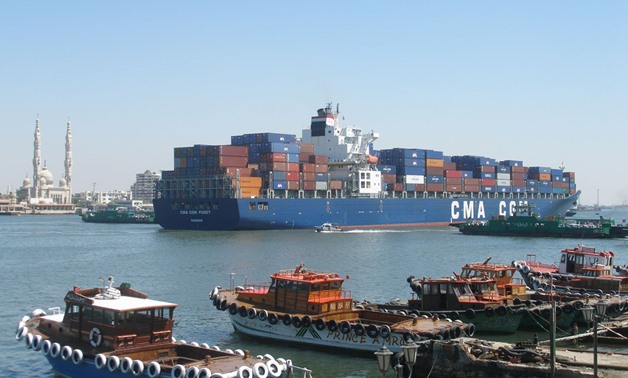
Trade balance between Cairo and Khartoum marks $591 million in 2016 - Creative Commons via Flicker/Vyacheslav Argenberg.
CAIRO - 2 June 2017: Some Egyptian products will not enter the Sudanese borders from now on, following a government decision announced by Sudan’s Prime Minister Bakri Hassan Saleh to ban the import of Egyptian animal and agricultural products.
Saleh urged the Sudanese private sector to import products directly from countries of origin, not through Egypt. The decision— which comes at a time when the two neighboring countries are witnessing tensions over border issues—is predicted to negatively affect trade balance with the southern neighbor and the intermediate traders.
Banning animal and agricultural products from Egypt is considered an escalated decision following September’s announcement to suspend imports of vegetables, fruit and fish from Egypt.
“Egypt has not been exporting food and agriculture projects to Sudan for nine months, and we never exported animal products to Khartoum,” head of the Agriculture Corps Export Council Abdel Hamid El Demerdash told Egypt Today.
“I don’t know why the Sudanese Prime Minister’s decision is being published now, maybe they want to spread it across international media now,” he said, throwing concerns over holding political reasons behind this decision.
Trade balance between Cairo and Khartoum had been rising from $772 million in 2012 and $839 million in 2013 to $1 billion in 2015, only to fall to $591 million in 2016, according to official figures from the Central Agency for Public Mobilization and Statistics (CAPMAS) and the Ministry of International Cooperation.
Egypt has achieved a surplus in the trade balance of $498 million in 2015, 77 percent more than $280 million of surplus in 2014, from its exports to Sudan.
Imports from Sudan fell to $18 million in 2016, compared to $113 million in 2014, recording the lowest level since 2009.
Sudan has refrained from fully carrying out the Agreement to Facilitate and Develop Trade among Arab States and the Common Market for Eastern and Southern Africa (COMESA), as it imposes customs on Egyptian products, state-news agency MENA reported in March, citing Cairo’s Commercial Representative Office in Khartoum.
Sudan has said its tests showed a presence of fungus in a sample of Egyptian oranges, “as a result of being irrigated with sewage water,” the Sudan Tribune reported.
The Sudanese move is seen as a new escalation, after Sudanese Foreign Minister Ibrahim Ghandour cancelled a planned trip to Cairo last month, where he was supposed to meet Egyptian Minister of Foreign Affairs Sameh Shoukry.
Egypt is looking forward to easing tensions, with Shoukry paying a visit to Khartoum in April, but the Egyptian Administration for Agricultural Quarantine has said it did not receive a notification of the halt, claiming that Sudan does not provide full information behind its decisions.
Meanwhile, spokesperson to the Egyptian Foreign Ministry Ahmed Abu Zeid told Reuters they were only told the halt comes due to a “technical procedure.”


Comments
Leave a Comment